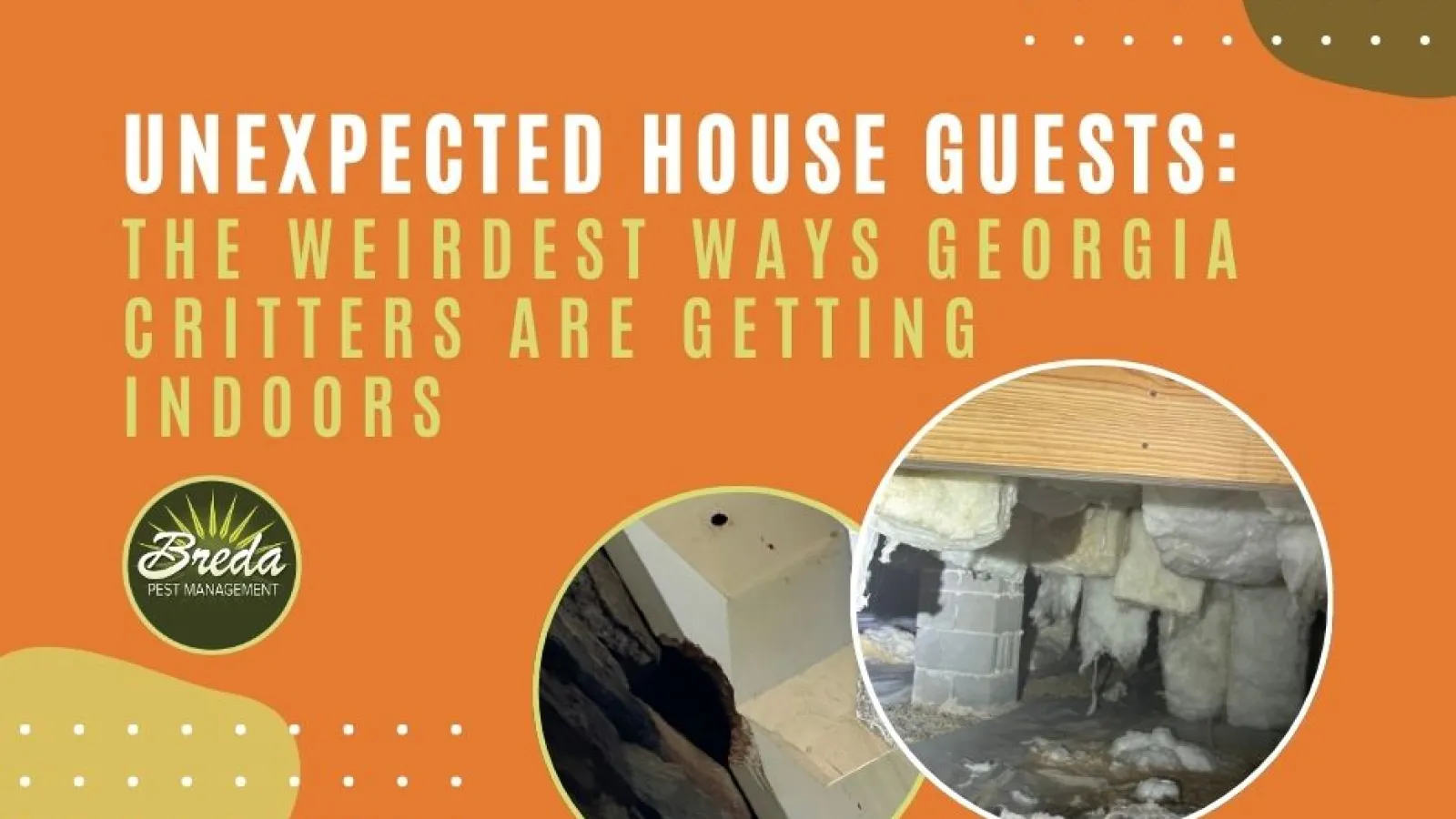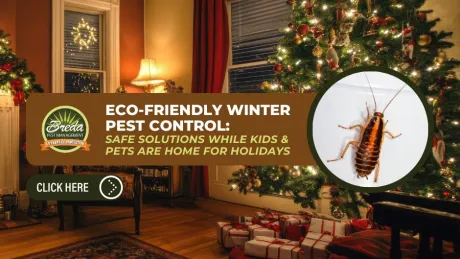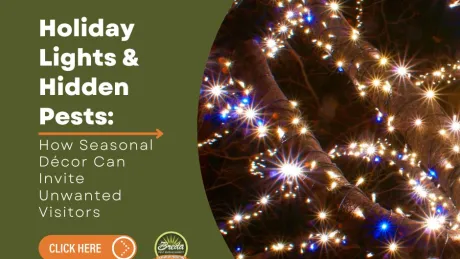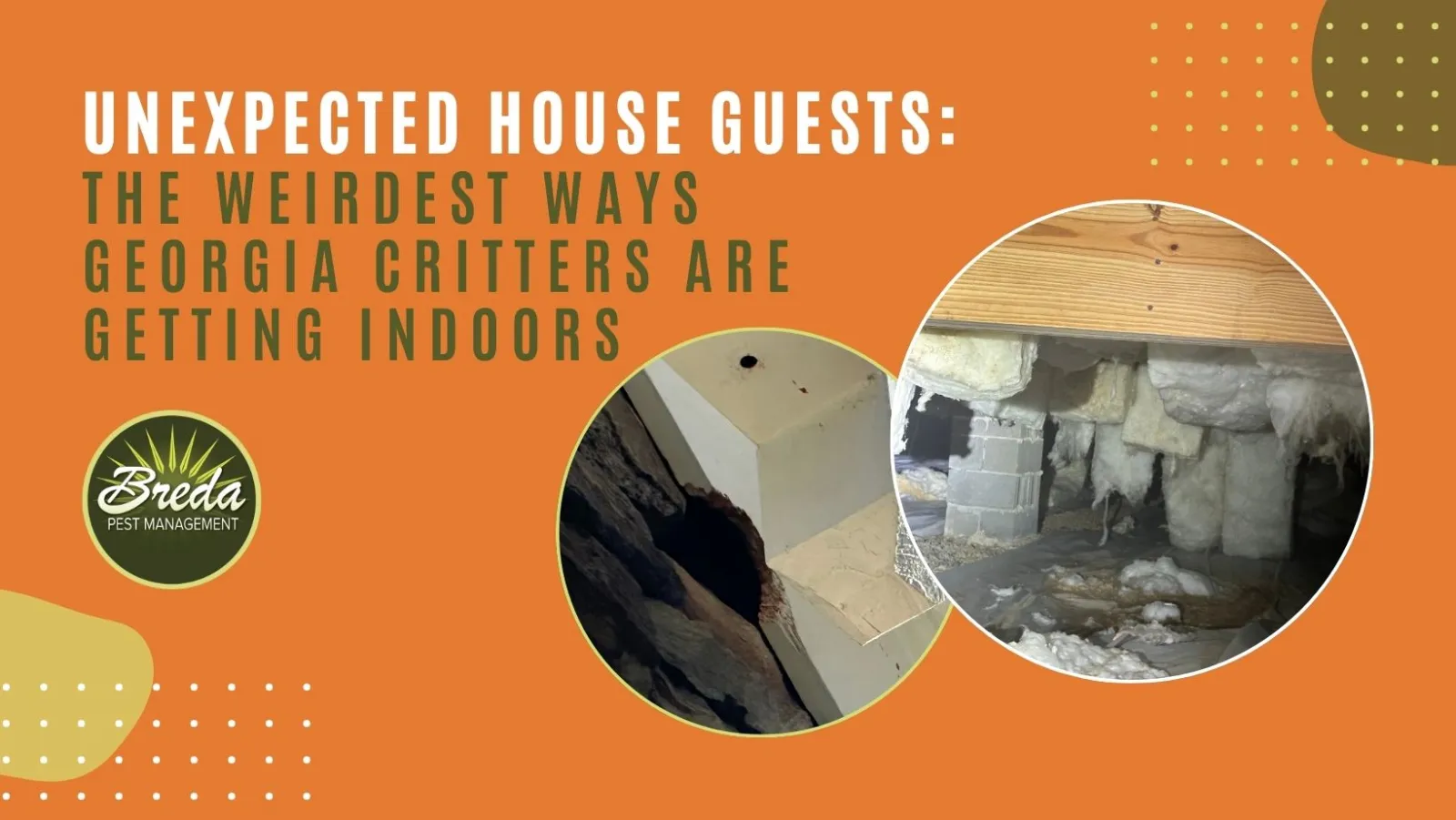
Ever wondered how bugs and critters get into your home? Here are 9 possible ways!
When it comes to keeping your Georgia home pest-free, you might think that sealing doors and windows and keeping things tidy is enough. But bugs and critters are far craftier than you'd expect! Whether they're squeezing through tiny cracks or swimming up through your plumbing, pests have developed some truly unexpected ways to get inside. In this blog, we'll explore how various critters enter Georgia homes, the risks they pose, and what you can do to keep these unwanted house guests out.
1. Plumbing and Sewer Lines: A Hidden Highway for Critters
If your home is connected to a sewer system, you might be unknowingly offering a direct entryway to pests. Sewer rats, also known as Norway rats, are notorious for using waste lines to invade homes. It sounds like something straight out of a movie—think Andy Dufresne in Shawshank Redemption, escaping through the main waste line. Sewer rats aren't just an urban myth; they can actually crawl up through your pipes, using your plumbing system as their personal tunnel.
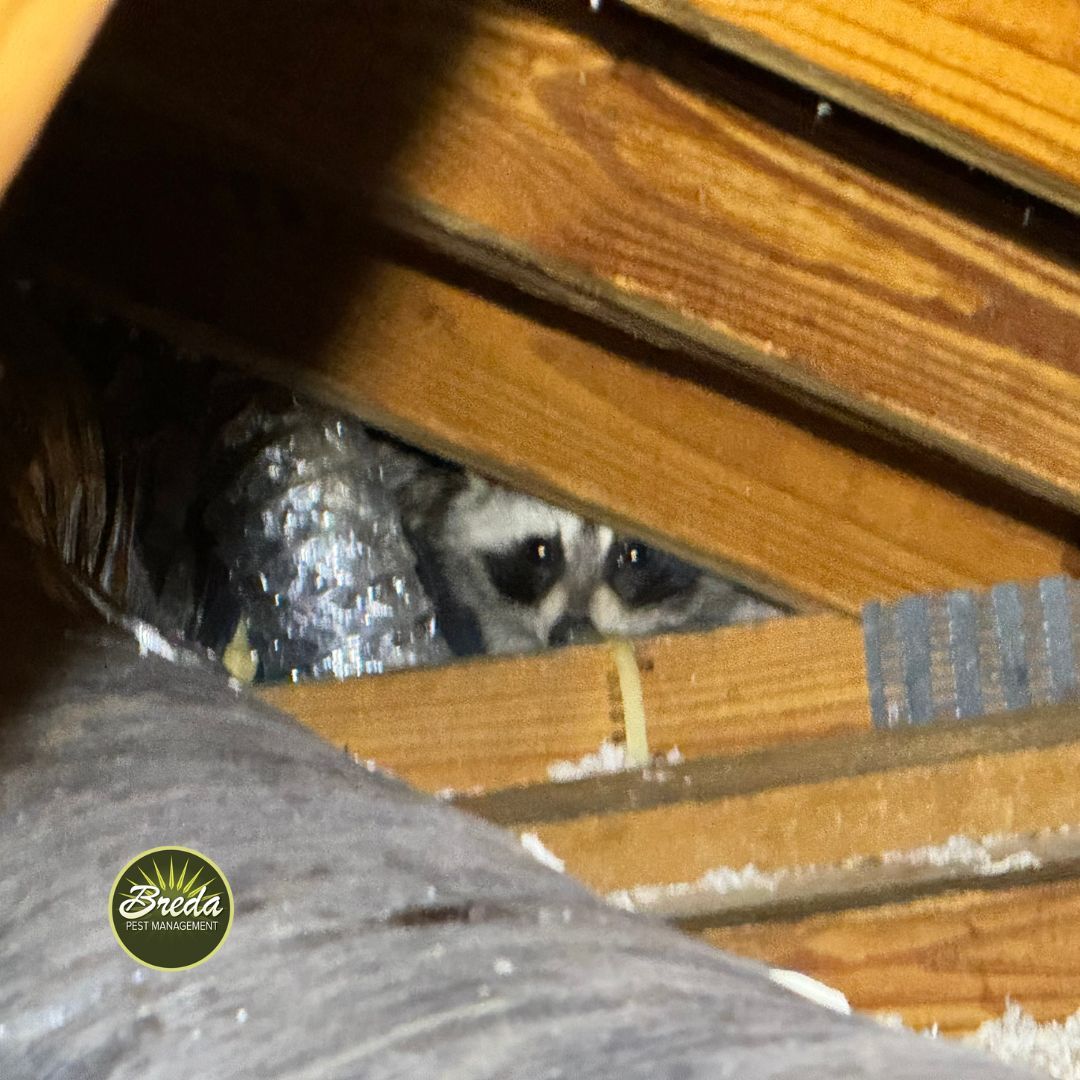
One possible solution to block these critters is installing a check valve. A check valve acts like a one-way gate for waste: it allows waste to exit your home but prevents rodents and pests from entering through the sewer. However, not everyone is a fan of these valves. Some plumbers find them tricky to maintain or believe they can cause more problems than they solve. Still, in areas with recurrent rodent issues, pest control professionals may recommend check valves as a last resort.
How to Prevent Sewer Rat Invasions:
Regularly inspect your plumbing system for any cracks or gaps.
Consider installing a check valve if your area has a known issue with sewer rats.
Hire a professional plumber and/or pest control company to assess any potential vulnerabilities in your waste lines.
2. Cracks in Your Foundation: The Gateway for Insects
Even the smallest cracks in your foundation can become entry points for insects like ants, spiders, and cockroaches. These bugs only need the tiniest opening to squeeze through, making it essential to inspect and seal any potential weak points in your home's structure. In Georgia, where shifting soil and humidity can lead to cracks, this problem is more common than you'd think.
Pro Tip: Use a high-quality sealant or caulk to close any cracks or gaps in your foundation, particularly around doors, windows, and where utility lines enter your home.
3. Chimneys: The Forgotten Entryway
Many homeowners forget about their chimney when thinking about pest control. However, critters like squirrels, bats, and even raccoons can use your chimney as a convenient entrance into your home. Once inside, they can wreak havoc, causing damage and leaving behind unpleasant odors or waste.
To prevent critters from entering through your chimney, installing a chimney cap is an easy and effective solution. A chimney cap not only keeps pests out but also prevents debris from blocking your flue.
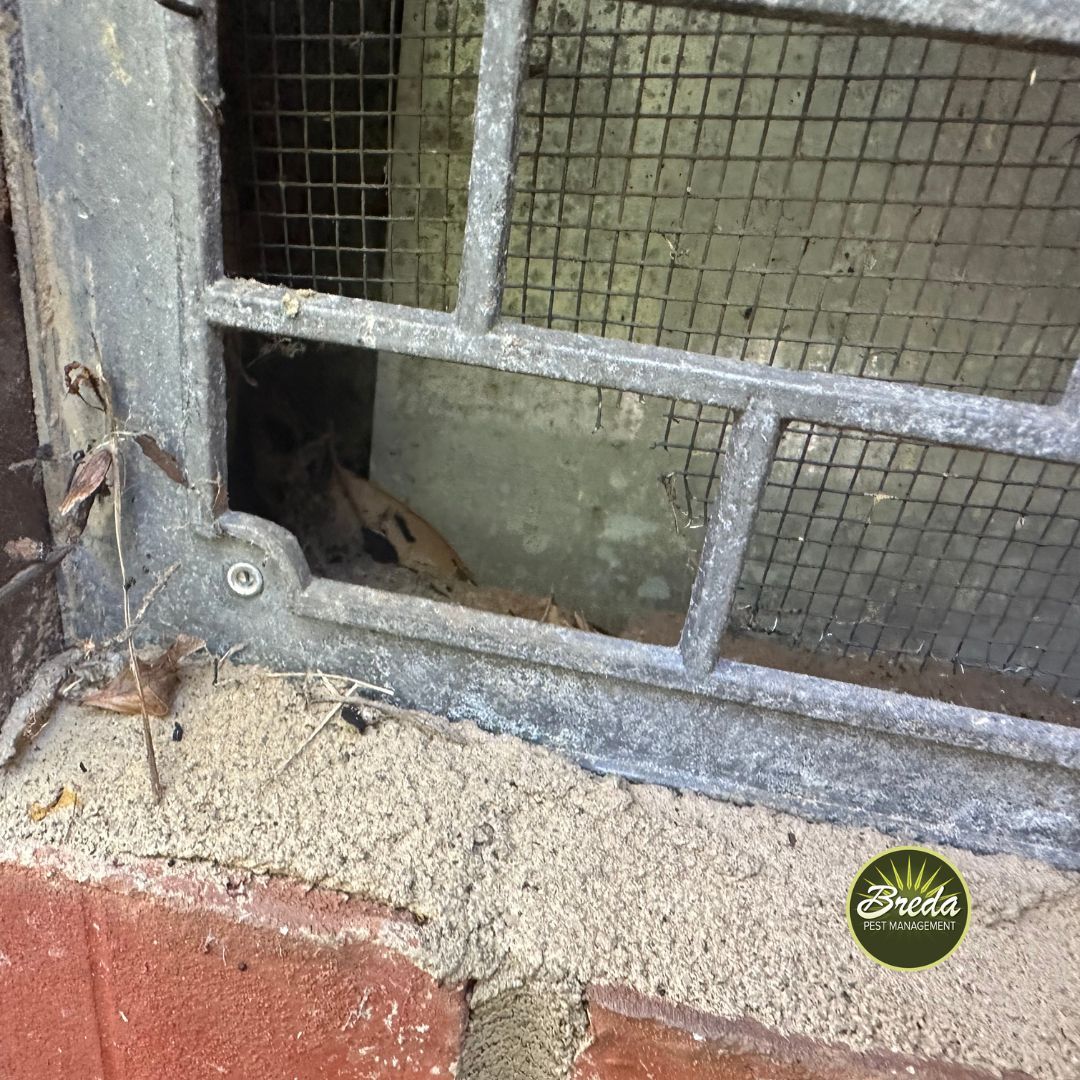
4. Gaps Around Utility Lines: A Pest Superhighway
If you've got gaps where cables, gas lines, or plumbing enter your home, you're giving pests like mice, rats, and even larger insects an easy way in. These gaps might be small enough to escape notice, but for pests, they're like wide-open doors.
Preventing Utility Line Invasions:
Inspect where utility lines enter your home and seal any gaps with steel wool or caulk.
Install mesh coverings over larger openings to prevent animals from chewing their way inside.
5. Garage Doors: A Prime Entrance for Bugs and Rodents
Your garage might be another unexpected entryway for pests, especially if the weatherstripping under your garage door is worn or damaged. Mice, rats, and even snakes can easily slip under a poorly sealed garage door. In Georgia, where garages often serve as storage spaces or workshops, this issue can be particularly prevalent.
What You Can Do:
Replace damaged weatherstripping on your garage door.
Keep your garage clean and clutter-free to discourage pests from nesting or hiding.
6. Attic Vents and Roof Damage
You might not think to look up when considering how pests get inside, but your roof and attic vents can serve as a prime entry point for all kinds of critters. Squirrels, raccoons, and roof rats can use overhanging tree branches to access your roof, while small gaps in your eaves or attic vents provide the perfect spot for them to enter.
Prevent Roof Invasions:
Trim tree branches that are close to your roof.
Install mesh screens over attic vents.
Regularly inspect your roof for damage or loose shingles that might provide an entry point for pests.
7. Weep Holes: Tiny Openings, Big Problems
Weep holes are small gaps that allow water to escape from between your home's walls and bricks. While these holes are essential for keeping moisture out of your walls, they also provide a perfect entry point for insects like spiders, wasps, and even lizards.
How to Secure Weep Holes: You can install mesh screens or weeper hole covers to block pests without interfering with your home's ventilation.
8. Pet Doors: An Open Invitation
Pet doors are convenient for your furry friends but can also be an open invitation for all kinds of pests. Rats, squirrels, and even larger critters like raccoons can squeeze through improperly secured pet doors. In some cases, snakes have even been known to enter through these doors in search of food.
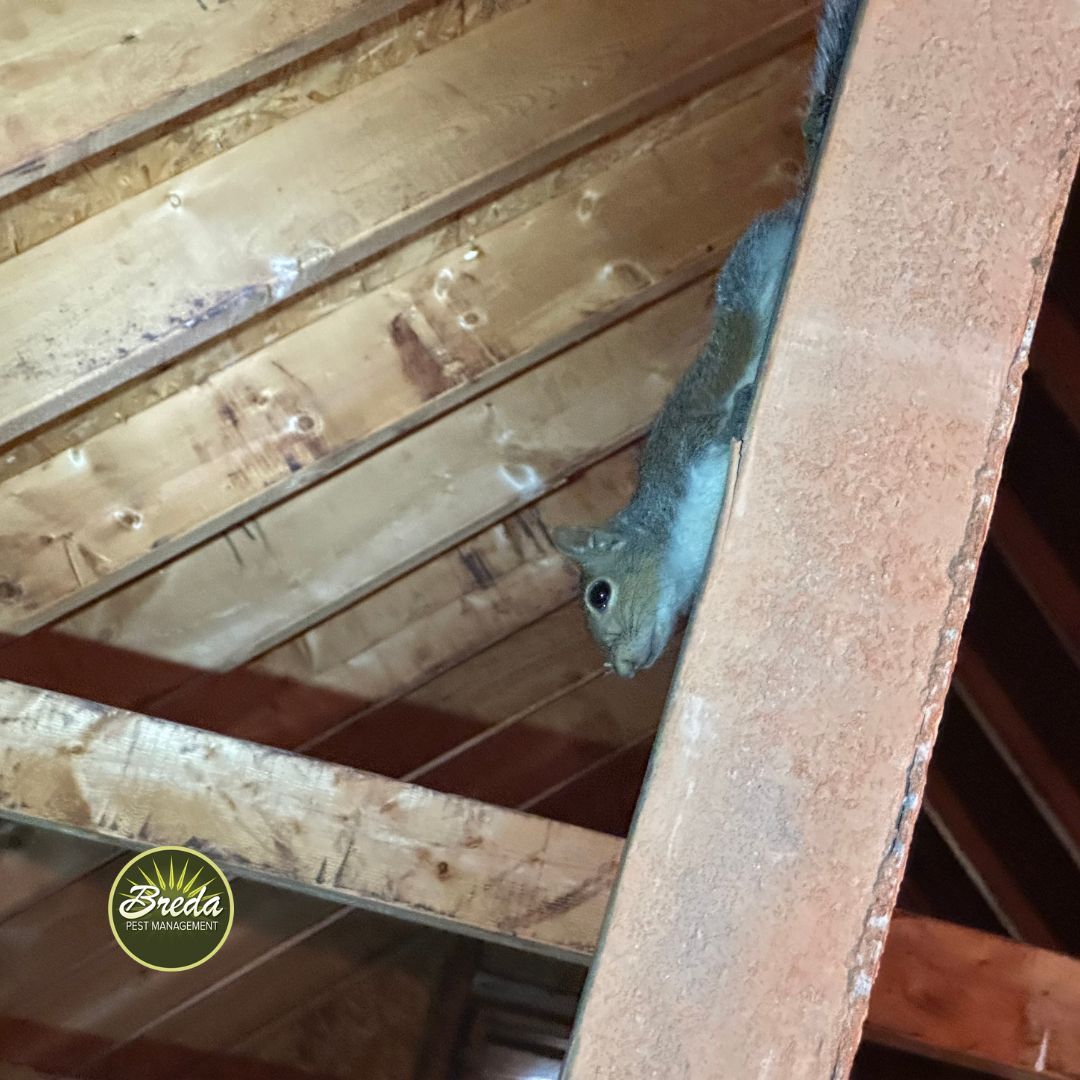
Keeping Your Pet Door Pest-Free:
Opt for a pet door that locks securely at night.
Choose doors with microchip recognition that only allow access to your pet.
9. Windows and Doors: The Usual Suspects
While this might seem obvious, windows and doors are some of the most common ways pests enter your home. Cracks in the seals, gaps in weatherstripping, or simply leaving doors open for extended periods can allow pests like flies, mosquitoes, and gnats to sneak inside.
What to Do:
Make sure your doors and windows close tightly.
Repair or replace worn weatherstripping.
Install screens over windows and doors, especially during warmer months when bugs are more active.
Critters and bugs in Georgia are always looking for a way to get inside, and they don't just rely on the obvious doors and windows. By taking proactive steps—like installing chimney caps, sealing gaps around utility lines, and maintaining your garage door—you can significantly reduce the chances of these unwanted guests making their way into your home.
No matter the season, vigilance and regular home maintenance are your best defenses against pests. And if all else fails, don't hesitate to contact BREDA Pest Management to assess your home and recommend solutions tailored to your specific pest control needs.
If you find yourself needing pest control and want it handled thoroughly, don't hesitate to give us a call. The BREDA Guarantee promises to fix your pest problem and keep it fixed—no matter the circumstances. Schedule a consultation online or give us a call at 770-466-6700.
